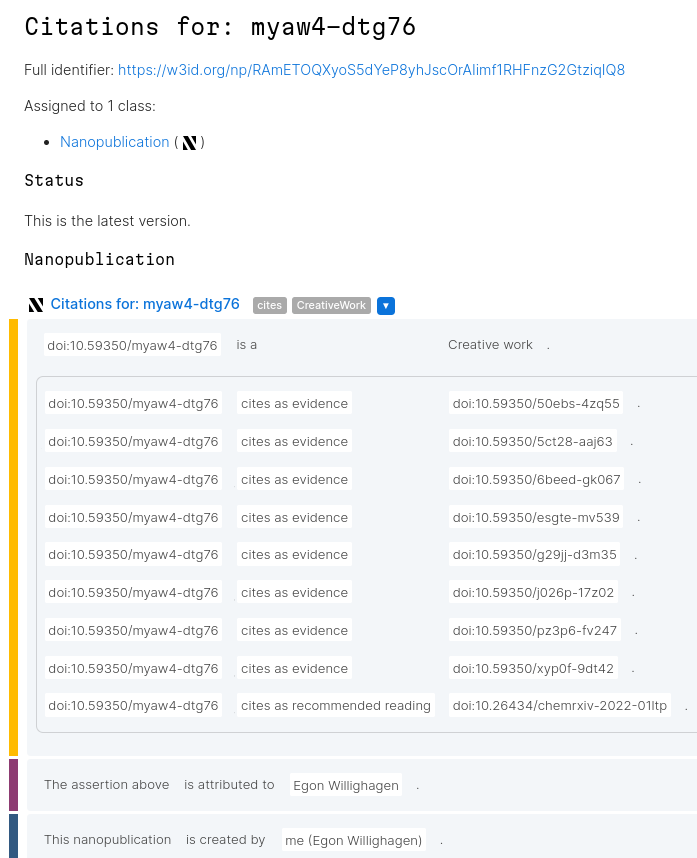-
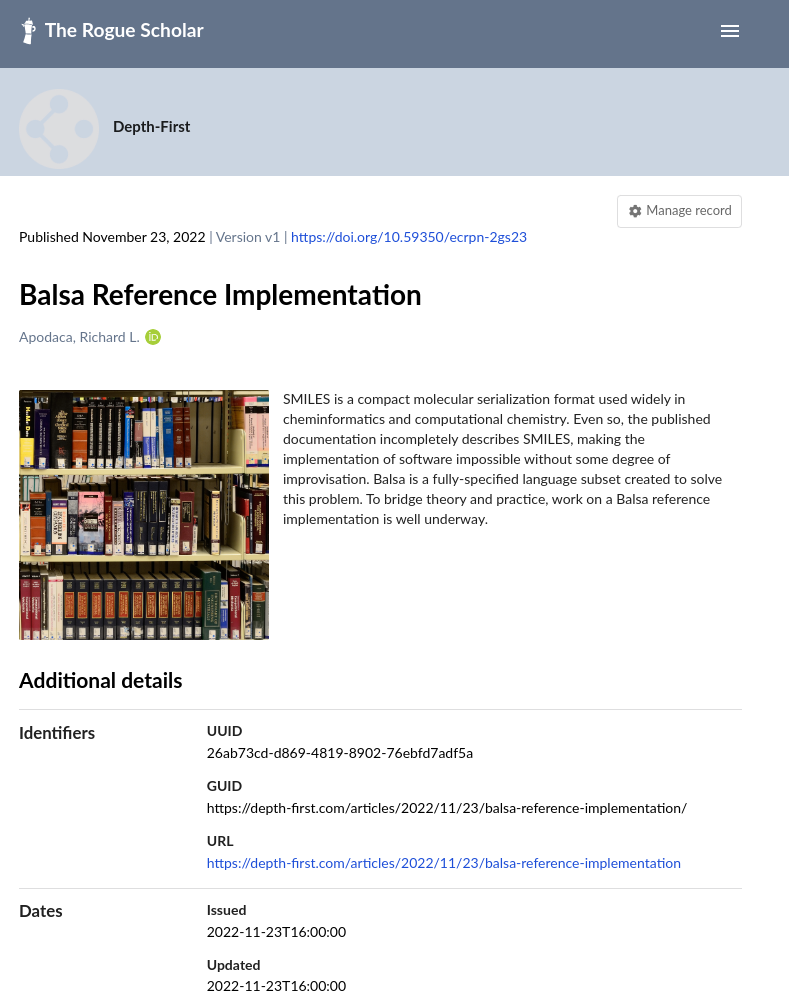
Archiving blogs
Blogs come and go. Sometimes they move from one location to another. However, blogs have not been systematically archived, perhaps for work by efforts by OpenLaboraty. Bora Zivkovic gave in 2012 a good overview , to which Paul Raeburn replied: “If you weren’t blogging in the mid-2000s, when all the science bloggers knew and blogrolled each other, you’ve already missed the golden age.”. I think blogging is as strong as ever, but a lot of blogs have become more like columns in bigger media. Archiving of blog had not been done systematically, tho some posts made it into print, for example in the Open Laboratory series. Some copies made it into libraries, e.g. 2006, 2010, and 2012. -
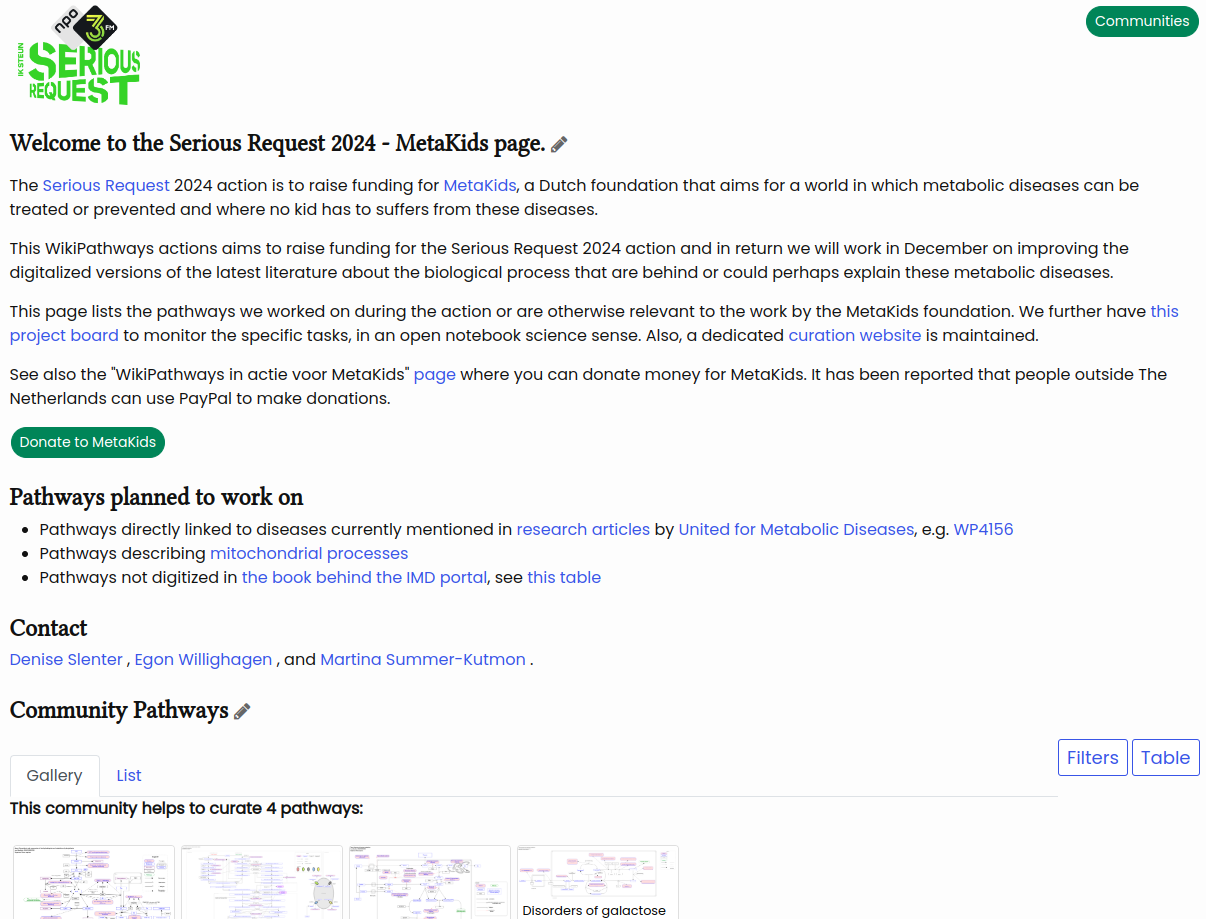
Serious Request: "WikiPathways in actie voor MetaKids"
Every day a child is born with an inherited metabolic disorder, and many do not grow old. MetaKids is a Dutch foundation that collects money and raises awareness and the charity selected this year for the NPO (Dutch national radio/tv) 3FM Serious Request. This has become a Dutch tradition. Serious Request will play music on the radio, when people contributed to the fundraiser, and the more money, the more often the music gets played. -
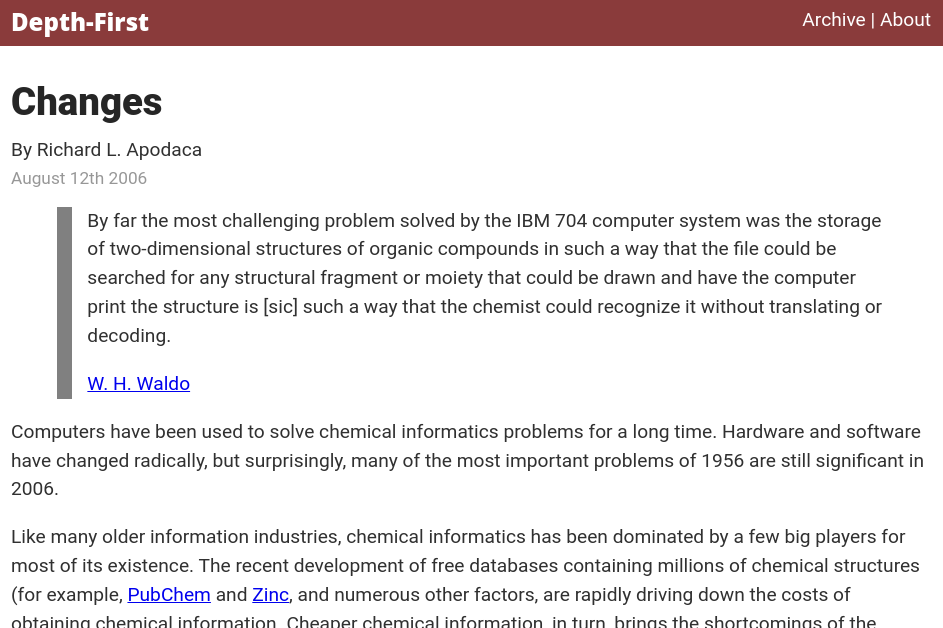
Richard L. Apodaca
If you are into openscience chemistry or chemistry blogging, then you probably heard of Rich Apodaca’s Depth-First blog. Rich started blogging in 2006 but this is not how I discovered his work originally. I know that we at least already had contact in 2005, because that is when he wrote about an integration between his Octet library and the Chemistry Development Kit in the CDK News (volume 2, issue 2), CDKTools: The CDK-Octet Bridge. In 2006 he reviewed our use of the Open Journal System for CDK News . -
Version of record, and what Open Access must learn from Open Science
Before we go into the learning bit, let’s just revisit what a version of record is. Wikipedia describes it as “the fully copyedited, typeset and formatted copy of a manuscript as published” (with two references). Basically, in the whole scheme of research output, it is a release. It is a tagged version of the output, allowing people to discuss that version specifically, so that we do not run into endless “oh, but I meant version manuscript_rewrite_V2_AE_MB_Fixed.docx”. Really, publishing is not unique at all and publishers are doing it wrong. -
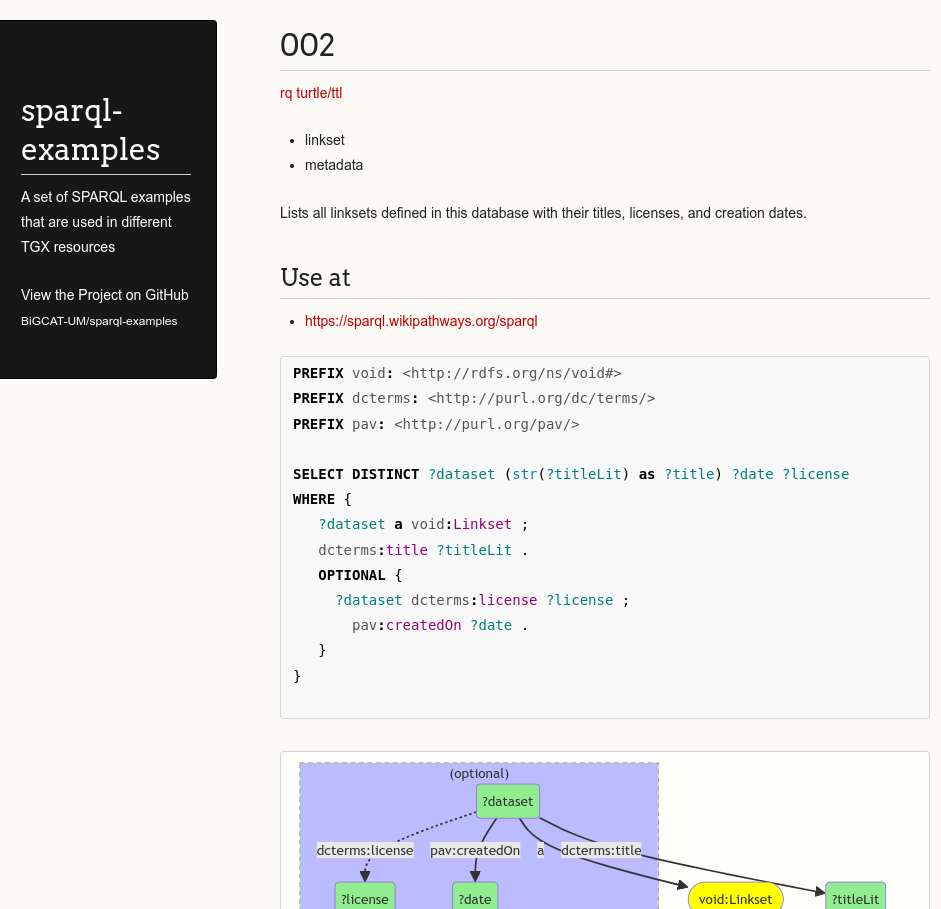
SPARQL examples: SIB model, software, and patches
Jerven Bolleman et al. recently published a great preprint about how to use RDF to give SPARQL queries context by linking it (semantically) with metadata. The context includes keywords, the SPARQL endpoint the query can be run against, and a human-oriented description of the query. A few groups have at recent hackathons been working on usingn the combination of a SPARQL query and a human-oriented description to train large language models, including the group behind this paper. Given that SPARQL is a very small language, I can see this may work well, and that it may support our VHP4Safety and Scholia projects. -

Mastodon, RSS, BlueSky
The x-odus continues and there is a wave of researchers moving from X to another walled-garden called Bluesky. This is good and bad. First, it is good that people are leaving X (imho) and it is good that they move to a platform that supports open standards, the AT Protocol. But I am less sure, about moving to another closed source platform. I prefer Mastodon. You can follow Mastodon accounts with their RSS feeds and that gives BlueSky users the ability to follow me on social media. This is important to me. I have a LinkedIn account too, but you can only follow me there if you have an account there too. To me, that does not align with the Open Science ideals.
